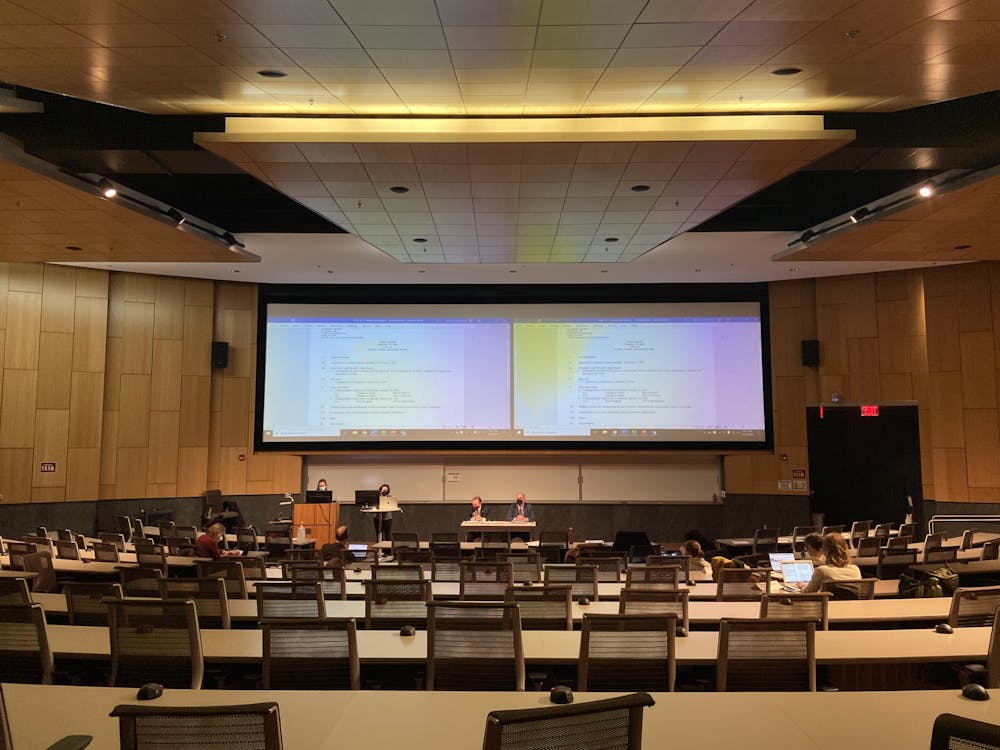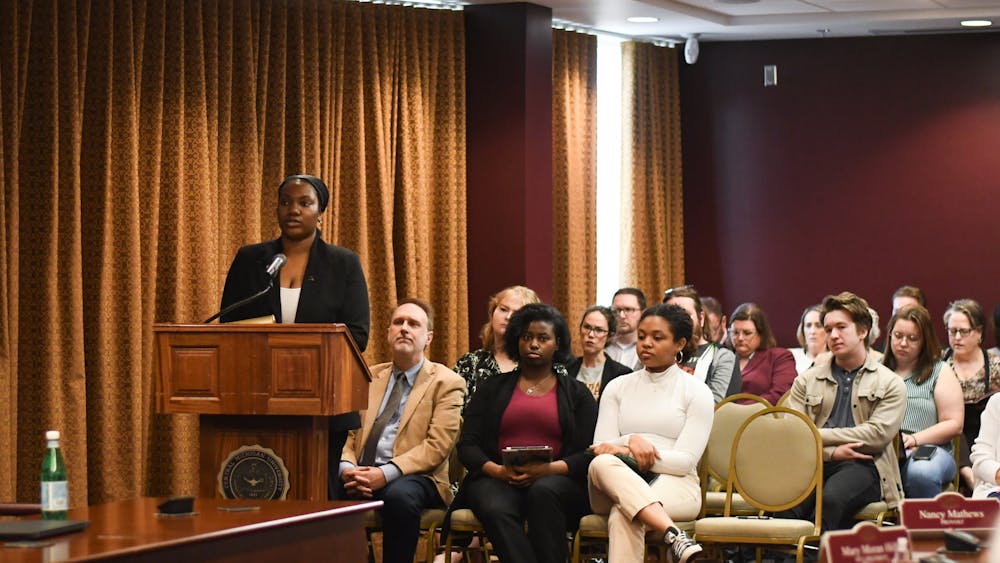Academic Senate addresses concerns with Washington Commons project
Website, budget and program assessment among other matters discussed
At its bi-weekly Tuesday meeting on March 1, the Academic Senate discussed a number of issues including concerns towards the Washington Commons project.
Several senators expressed concerned about the demolition of Parking Lot 22 for the Washington Commons project. Senator Alan Rudy said some faculty, staff and students feel they have not been included in the project’s planning.
“It really seems to me that a lot of the frustration people feel is they feel like all they’re doing is complaining,” Rudy said. “I know that there’s a desire that we all work together, but working together better means doing the work together better.
“Right now, we’re being presented projects as if they’re complete and then asked for commentary, and then it just goes on as if we hadn’t spoken. If we’re going to address how people feel at CMU—if we’re going to present a better face to the public, we need to have this actively engaged process…because then we just have the unhealthy thing that we often have now.”
Senator Tracy Collins asked if Interim Provost Richard Rothaus could offer evidence to confirm his statement that course cancellations or low enrollment in the summer were due to on-campus housing shortages.
“The intended suggestion,” Rothaus said, “was that perhaps students living in air-conditioned living spaces adjacent to campus might increase the number of students who want to take in-person summer courses.”
Rothaus said feedback about the Washington Commons project can be sent to fas@cmich.edu.
The senate discussed several other issues during its meeting like the new website, next year's budget and adjustments to program assessment.
CMU Website Updates
Some senators were concerned about missing information on the new CMU website. A Feb. 24 email from University Communications announced the removal of faculty and staff emails from the website to prevent phishing scam emails.
In a question submitted before the meeting, Senator Joanna White said faculty biographies and email addresses have disappeared from the website. She said providing faculty contact information is important for “anyone outside the university regarding scholarly/creative consultation or collaboration.”
Hiding email addresses makes it harder for scammers to collect lists of email addresses, Interim Provost Richard Rothaus said. Senator Alan Rudy asked if anyone outside CMU would be able to find his email address.
“It’s not completely impossible,” Rothaus said, “but can they go to our website and find it? It’s difficult and unlikely they would.”
Senator Aparna Lhila suggested an alternative solution to hiding emails. She said people browsing Western Michigan University’s website can click on a faculty member’s name to email them without being able to see their email address.
“We cannot have phone numbers as the only means of communication,” Lhila said. “By the way, I’m now receiving voicemail spam messages too and I wonder how far back in time we are willing to go for fear of spam. Homing pigeons?”
2022-2023 Budget
Senator Martha Frank asked when the 2022-2023 budget would be finalized. Frank said the Mathematics Department does not know how many graduate students it will be able to fund.
“If we don’t make offers pretty soon, we’re going to lose some good graduate students,” Frank said. “They will go elsewhere. That’s going to hurt our enrollment.”
“The short answer is (the budget) timeline does not correspond well at all with the graduate student application timeline,” Rothaus said. “This is a problem that the deans have discussed.”
In an answer to a question from Collins about the Office of Curriculum and Instructional Support, Rothaus said “no budget decisions for next year have been made yet.”
Changes to Program Assessment
The senate passed changes designed to make assessing programs easier. The changes are a part of the Curricular Authority Document (CAD), which dictates how programs are changed. Senate Chairperson Katrina Piatek-Jimenez said CMU has to assess its programs, but the CAD changes would decrease the number of programs that need to be assessed, in an effort to decrease faculty workload.
Graduate programs and majors need to be assessed more often than minors and certificate programs, which is reflected in the CAD changes. Piatek-Jimenez said the goal was to decrease the work-load of faculty.
“The lens that the Assessment Committee used when proposing these changes was, how can we ease the burden from faculty while not sacrificing quality (of program assessments),” Piatek-Jimenez said.
Sociology faculty member Mary Center said there are 10 certificate programs in the College of Liberal Arts and Social Sciences that will no longer need assessment under the changes.
Academic Senate meetings are held at 3:30 p.m. bi-weekly on Tuesdays in the French Auditorium. Livestream and recording links can be found on the senate website.





